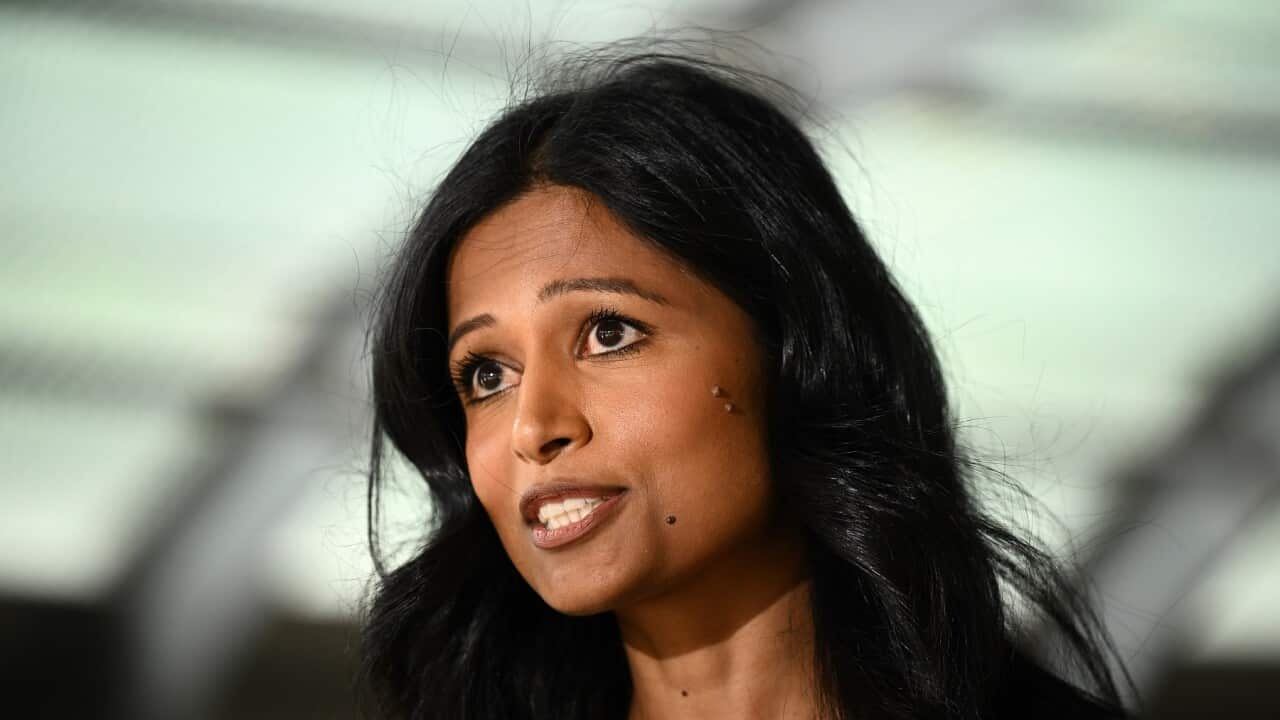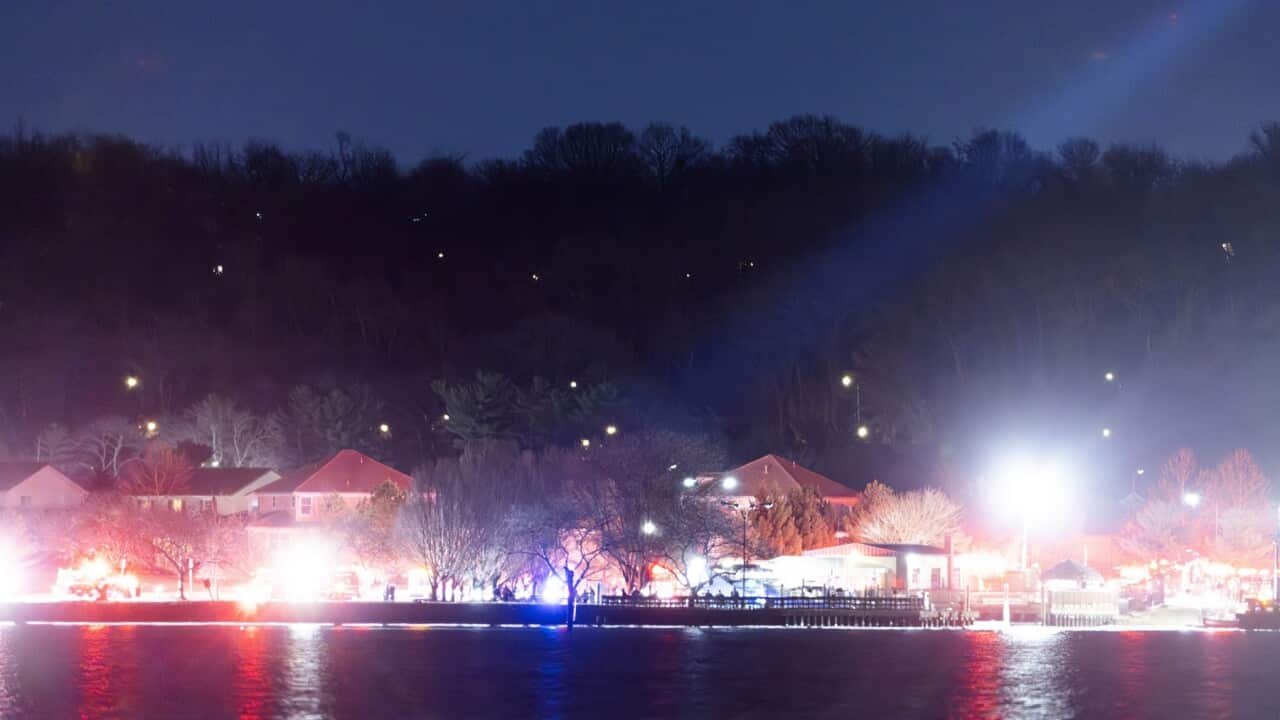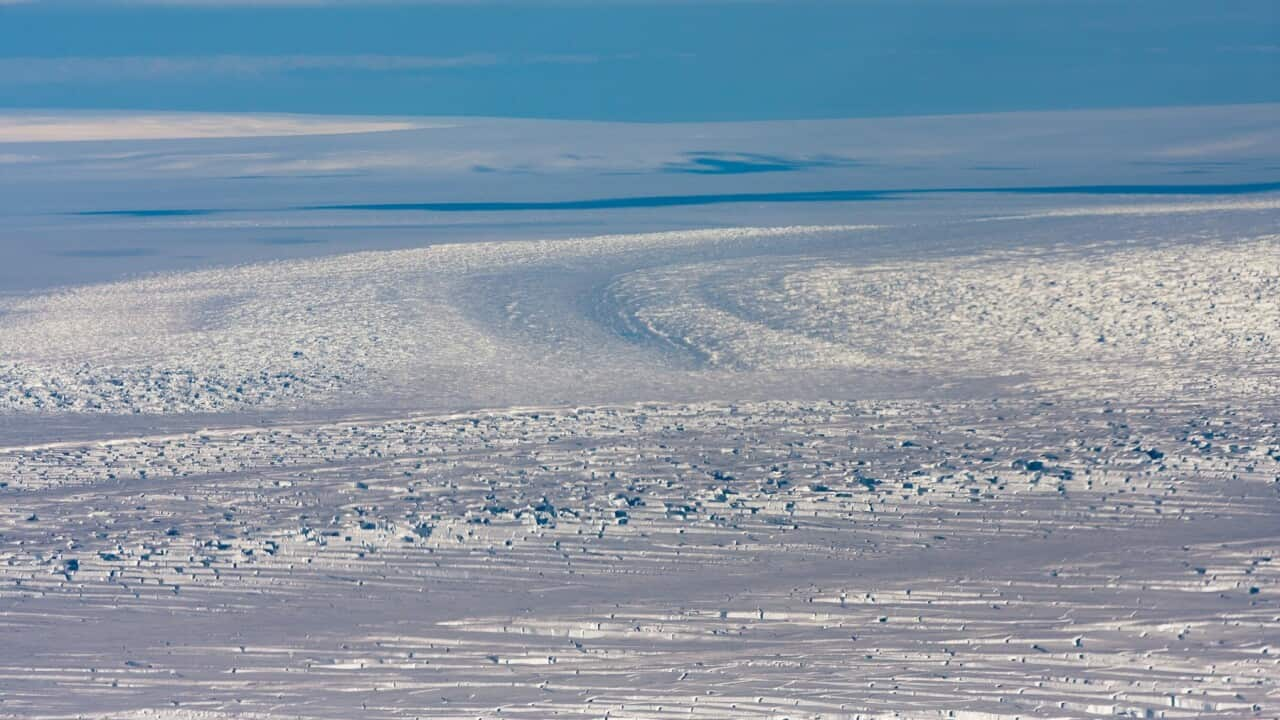TRANSCRIPT
Iran's Islamic Revolutionary Guard Corps says it has launched a barrage of ballistic missiles at Israeli military targets in response to the killing of Hezbollah leader Hassan Nasrallah, Hamas leader Ismail Haniyah and others.
Alarms sounding across Israel, explosions heard in Jerusalem, the Jordan River Valley and other areas - people taking cover in bomb shelters.
Israel's Ambassador to the United Nations Danny Danon says millions of people in Israel have sought shelter.
"Just hours ago, the Iranian regime launched an unprecedented assault on Israel, launching close to 200 ballistic missiles at our civilian population. An attack on this scale have not been seen since the blitz of London. Ten million people were forced into bomb shelters. Imagine the entire population of New York City in ten minutes have to seek shelter. Children, babies, elderly - that's what happened in Israel."
The missile attacks resulting in relatively few casualties.
Two Israelis were injured by falling shrapnel and debris, while a Palestinian man in the West Bank was killed in Jericho, also by falling missile debris.
Israeli Prime Minister Benjamin Netanyahu is vowing Iran will pay a hefty price for its attack, the second since the Israel-Hamas war began nearly a year ago.
"Iran made a big mistake tonight - and it will pay for it. The regime in Iran does not understand our determination to defend ourselves and our determination to retaliate against our enemies. Sinwar and Deif didn't understand it, Nasrallah or Mohsen didn't understand it. Apparently, there are those in Tehran who do not understand this either. They will understand. We will keep to the rule we have determined: Whoever attacks us – we attack them."
US President Joe Biden says he is in active discussions with aides about an appropriate response.
"Make no mistake, the United States is fully, fully, fully supportive of Israel. And I just I spent the morning in number and part of the afternoon in the Situation Room and, meeting with my whole national security team and consulting with the Israelis and directly because , in terms of their impact on us and the national security team has been, as I said, constant contact with Israeli officials, with their counterparts."
Iran's armed forces joint chief-of-staff, General Mohammad Bagheri, is warning any retaliation by Israel or its allies will be met with an even more concentrated and intense attack aimed at Israel's infrastructure.
"The revolutionary guard and Iran's armed forces are ready both defensively and offensively to repeat this operation with multiplied intensity. If the Zionist regime, which has gone insane, is not contained by America and Europe, and intends to continue such crimes or do anything against our sovereignty or territorial integrity, tonight's operation will be repeated with much higher magnitude and we will hit all their infrastructures."
From Australia, Prime Minister Anthony Albanese is condemning Iran's attack - calling for de-escalation.
"We of course condemn Iran's actions. We once again reiterate the call that we've made along with the United States, the United Kingdom, the European Union, Italy, Germany, Japan, Saudi Arabia, Qatar, the UAE, other nations as well calling for de-escalation. We're very concerned about the Iran's actions which is why we condemn them."
Mr Albanese is also again repeating the federal government's call for Australians in Lebanon to leave.
"This is a dangerous region at the moment. We know that is the case, but it hasn't just arisen in past days. And we have been calling for many, many months for people to take the opportunity to leave through commercial means - when they could. People should take any opportunity that they can to leave. But the Australian government of course will always do our best to look after Australian citizens."
Minutes before Iran attacked Israel, six Israelis were killed and nine injured in Tel Aviv's Jaffa area, the result of being shot or stabbed by Palestinian assailants.
Israel Police International Spokesperson Dean Elsdunne explains what happened.
"The preliminary reports state that two terrorists arrived to this location, where they hopped onto a light rail train. On the train, they started opening fire onto civilians. They managed to kill, to murder, four civilians. That's what we know of at this time. Again, these numbers are dynamic and they're changing as they're coming in. We know there are other victims there that are injured."
Both assailants were killed by armed bystanders.
Meanwhile, in Lebanon, explosions were heard, fire and smoke visible along the Beirut skyline, the Israeli military confirming it was striking Hezbollah targets.
Lebanon's Health Ministry, says Israeli strikes across Lebanon have killed over 1,000 people over the past two weeks.
In Gaza, Palestinian medical officials say Israeli airstrikes have killed at least 19 people, including five women and three children.
Al-Aqsa Martyrs Hospital receiving 11 bodies after a strike on Nuseirat refugee camp, with Nasser Hospital reporting another eight deaths in a strike on a vehicle in Khan Younis.
Associated Press reporters confirmed the body count at both hospitals.













